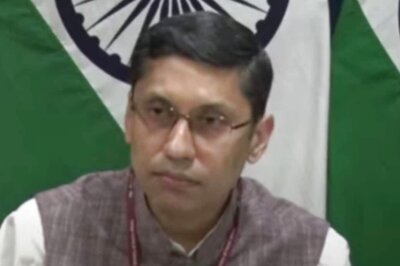
views
Diabetes has become a major health concern in India, with the number of affected individuals expected to rise from the current 77 million to 124 million by 2045. Alongside this, the country is witnessing a sharp increase in heart disease cases. The interrelation between diabetes and heart failure is undeniable, as both conditions share common risk factors like obesity and hypertension. As Dr. Praveen Chandra, Chairman of Interventional Cardiology and Structural Heart at Medanta, The Medicity, Gurugram, explains, “Diabetes significantly raises the risk of cardiovascular problems, including heart failure, due to the damage caused to blood vessels by elevated blood glucose levels.”
The link between diabetes and heart failure extends beyond shared risk factors. Diabetic cardiomyopathy, a condition where high blood sugar levels directly impair heart muscle function, exacerbates the risk. “Insulin resistance, which defines diabetes, triggers oxidative stress, microvascular dysfunction, and inflammatory processes, all of which hinder the heart’s ability to pump blood effectively,” adds Dr. Chandra. Moreover, heart failure can worsen glucose metabolism, creating a vicious cycle between the two conditions.
Advances in Medical Treatment
The good news is that advances in medical science are paving the way for more effective management of diabetes and heart failure. For diabetes, technologies like continuous glucose monitors (CGMs) and insulin pumps allow for precise blood sugar management, while newer pharmacological options, such as SGLT-2 inhibitors and GLP-1 receptor agonists, offer promising results. “We are also witnessing the rise of innovative treatments like stem cell therapy and artificial pancreas devices, which hold great potential for better diabetes control,” says Dr. Chandra.
On the heart failure front, left ventricular assist devices (LVADs) have emerged as a significant treatment option. LVADs are mechanical pumps that help the heart’s left ventricle pump blood to other organs, offering a lifeline for patients with severe heart failure. “LVADs can act as a bridge to heart transplantation or even serve as long-term therapy, improving patients’ quality of life and stabilising cardiac function,” explains Dr. Chandra. These devices have also shown promise in helping manage diabetes more effectively by improving organ perfusion and reducing the metabolic demands on the heart.
The Need for Integrated Care
Dr. Ashwin B. Mehta, Interventional Cardiologist and Director of Cardiology at Jaslok Hospital and Research Centre, Mumbai, emphasizes the necessity for a more integrated approach to managing diabetes and heart failure. “In traditional care approaches, heart failure and diabetes are often treated separately, neglecting their reciprocal link. An integrated management strategy can significantly improve patient outcomes,” says Dr. Mehta.
For individuals with diabetes, heart disease remains a leading cause of death and disability. Prolonged high blood glucose levels damage blood vessels, heightening the risk of heart complications. Complicating matters further, diabetic patients frequently also suffer from high blood pressure, dyslipidemia, and elevated triglycerides, all of which increase the likelihood of heart disease. “One of the main challenges is that none of these conditions typically present with obvious symptoms, making early diagnosis difficult,” Dr. Mehta points out.
Given the high risk of heart failure in diabetic patients, Dr. Mehta stresses the importance of lifestyle modifications and advanced heart failure therapies, including LVAD treatment. “For diabetic patients with severe heart failure, LVAD therapy not only improves circulation but also mitigates symptoms like exhaustion and shortness of breath. By enhancing heart function, LVADs can help stabilize blood sugar levels and reduce hospital stays,” he explains. In some cases, LVAD therapy can even delay or eliminate the need for a heart transplant while improving survival rates.
The growing prevalence of diabetes and heart failure in India calls for an integrated approach to managing both conditions. As Dr. Praveen Chandra and Dr. Ashwin B. Mehta underscore, addressing the interconnected nature of these diseases through advanced therapies and comprehensive care can significantly enhance patient outcomes. By bridging the gap between diabetes management and heart failure treatment, healthcare professionals can offer patients a better quality of life and improved survival rates.




















Comments
0 comment